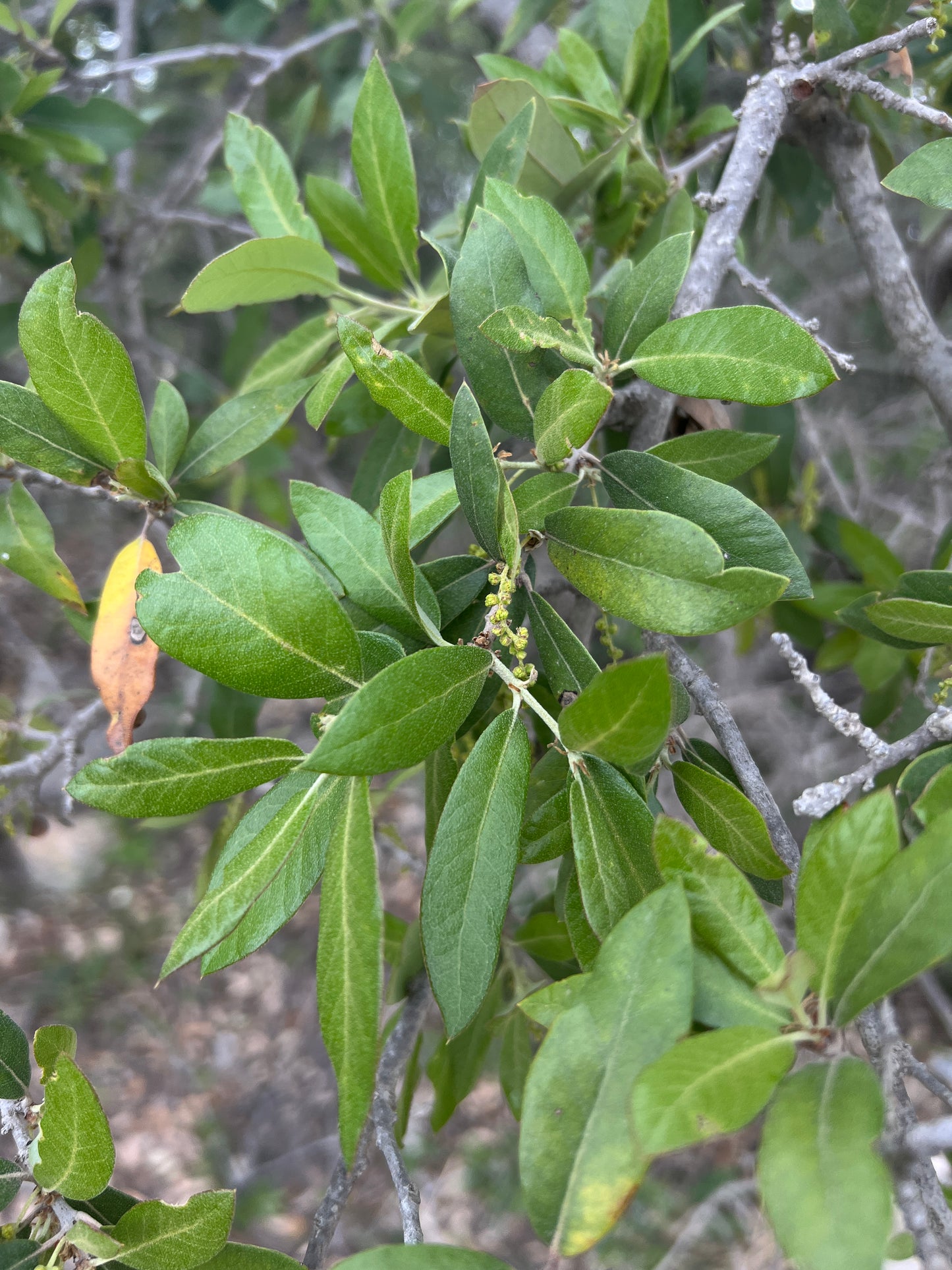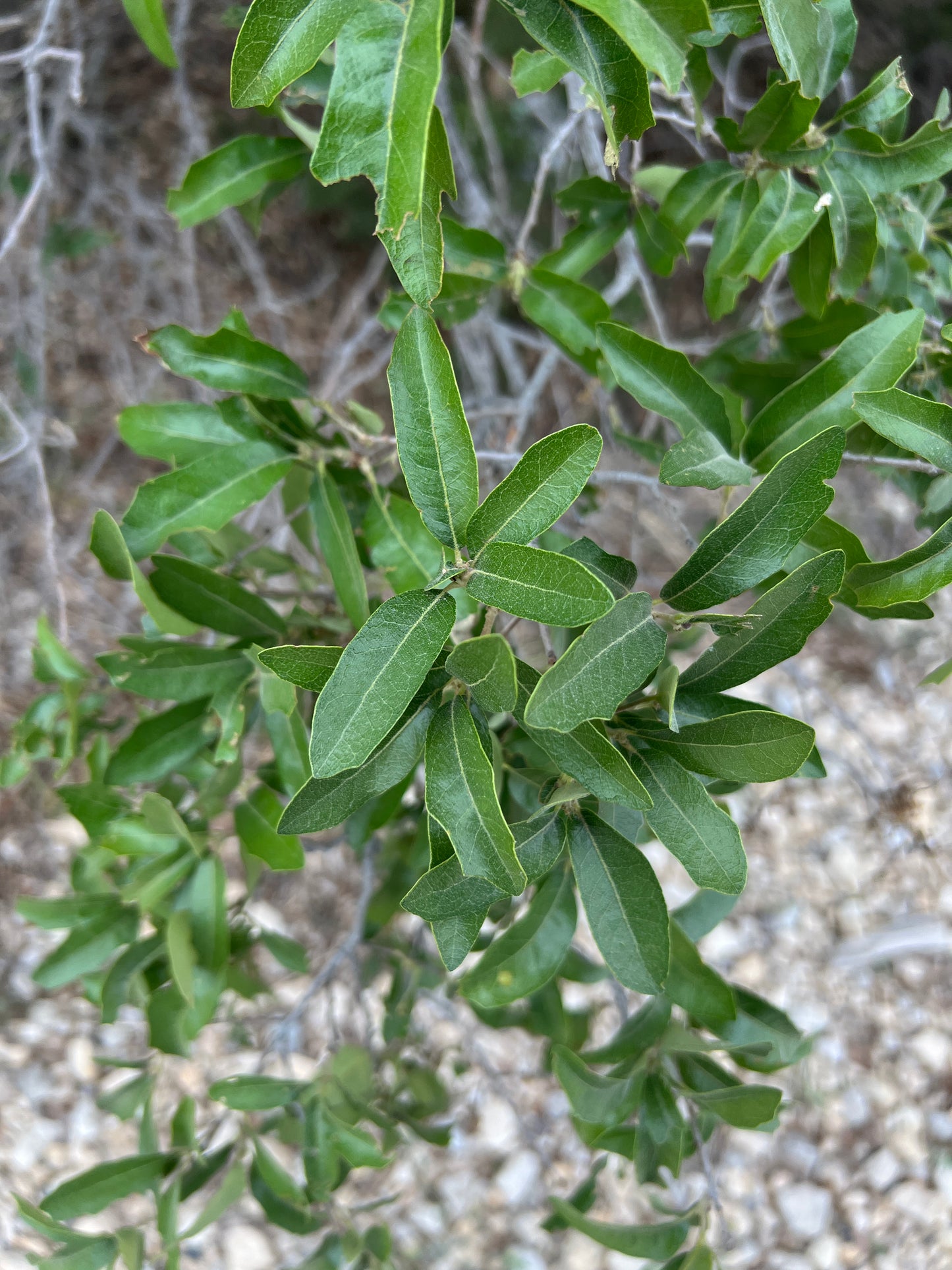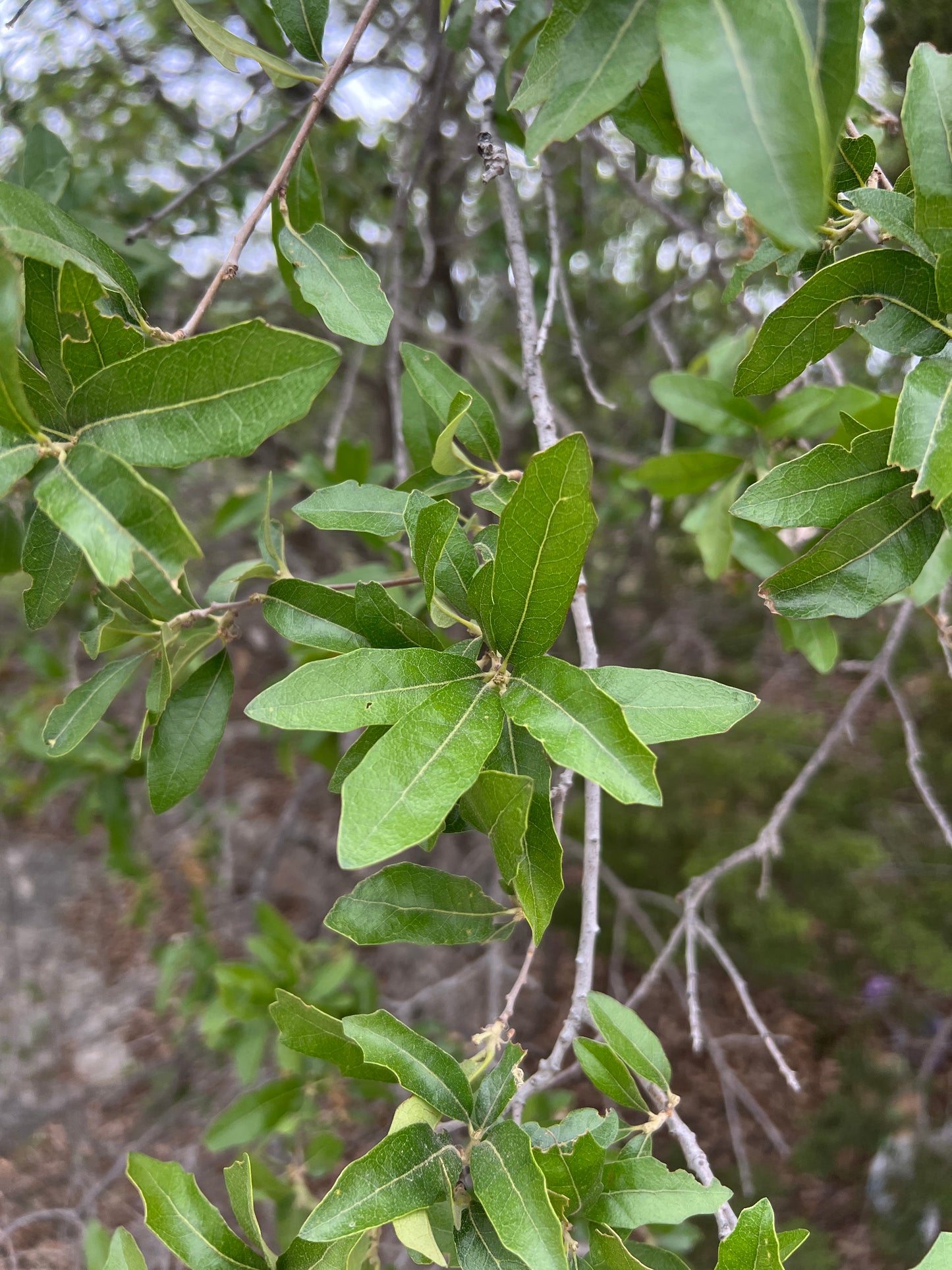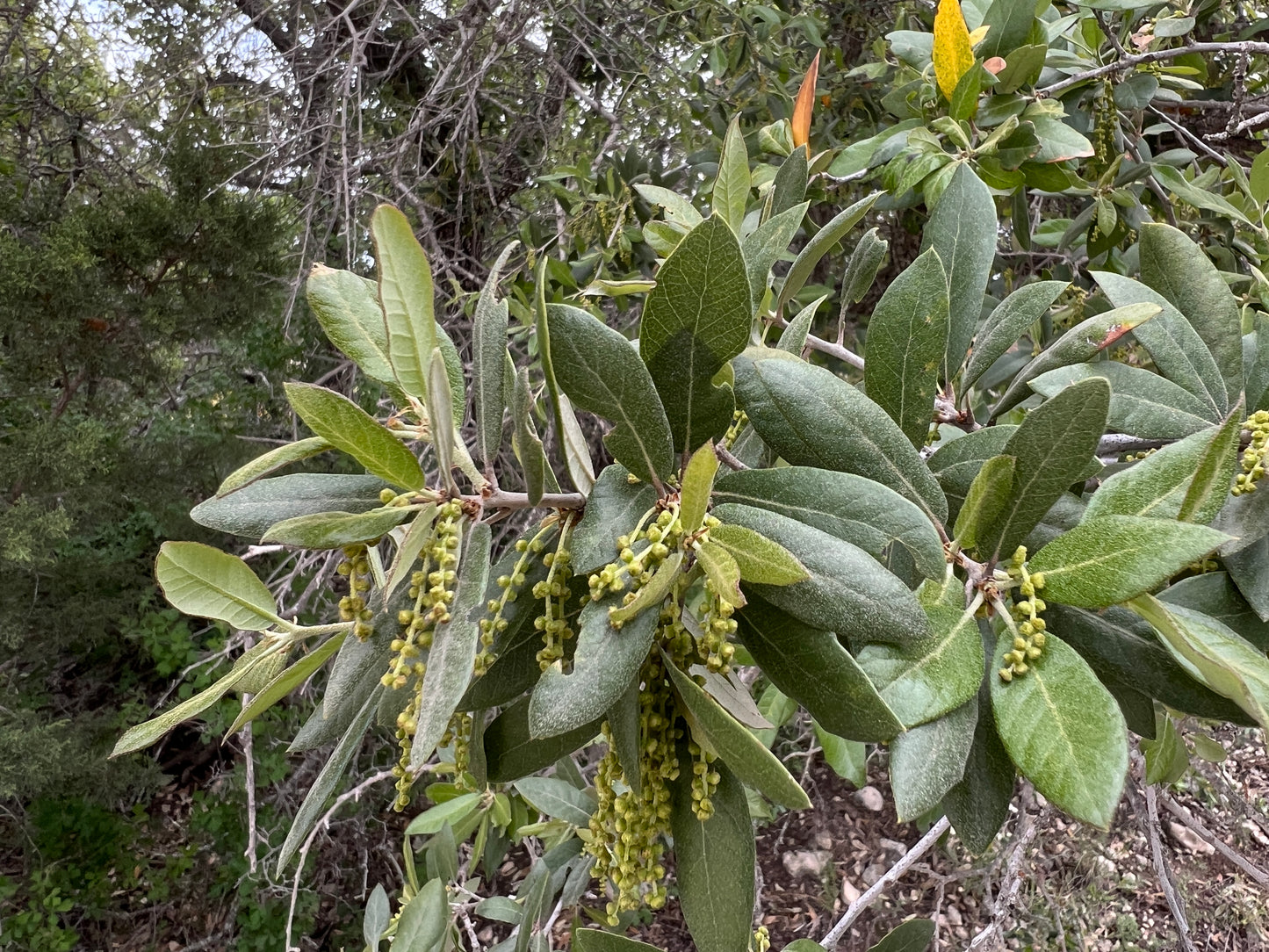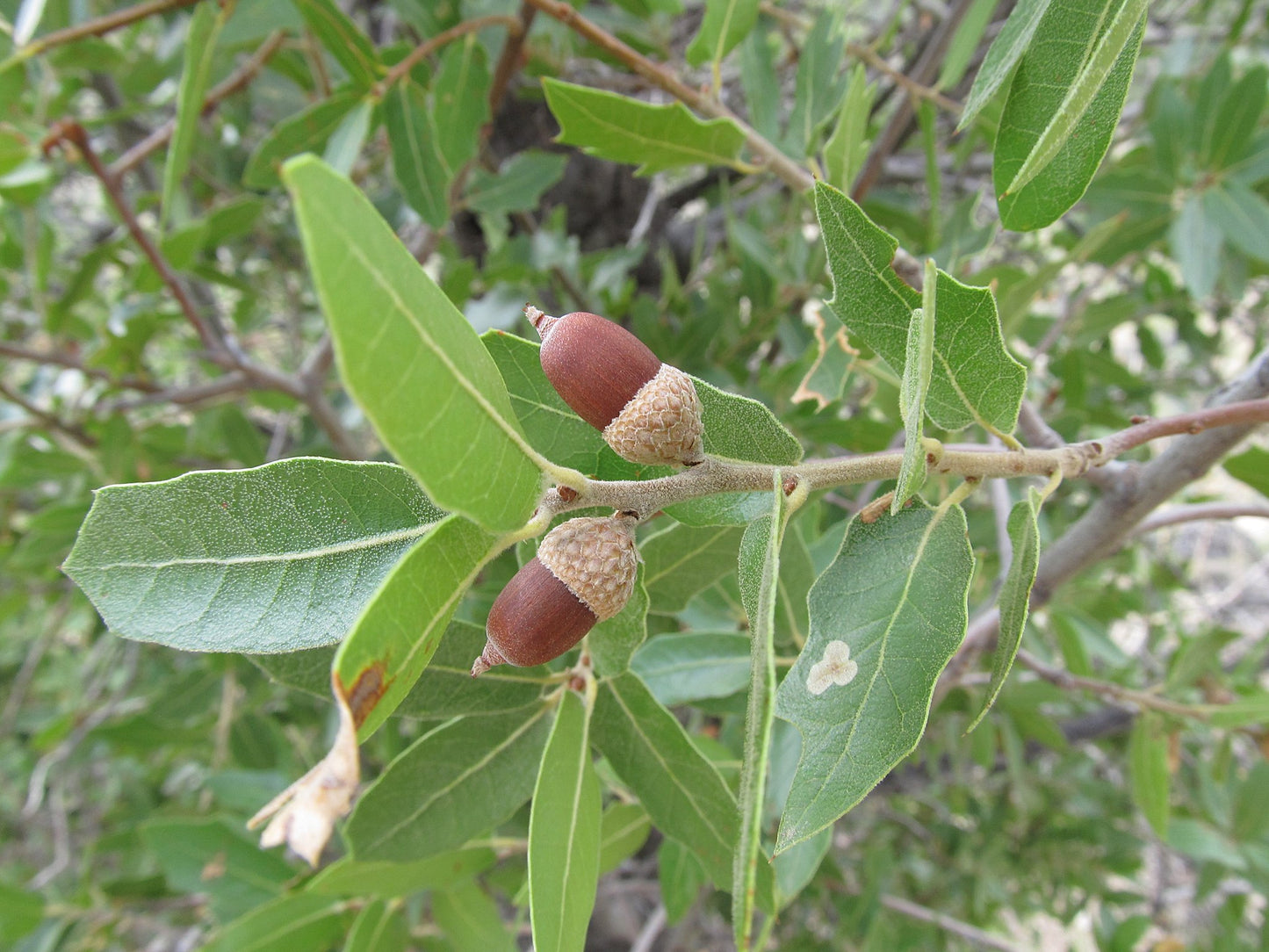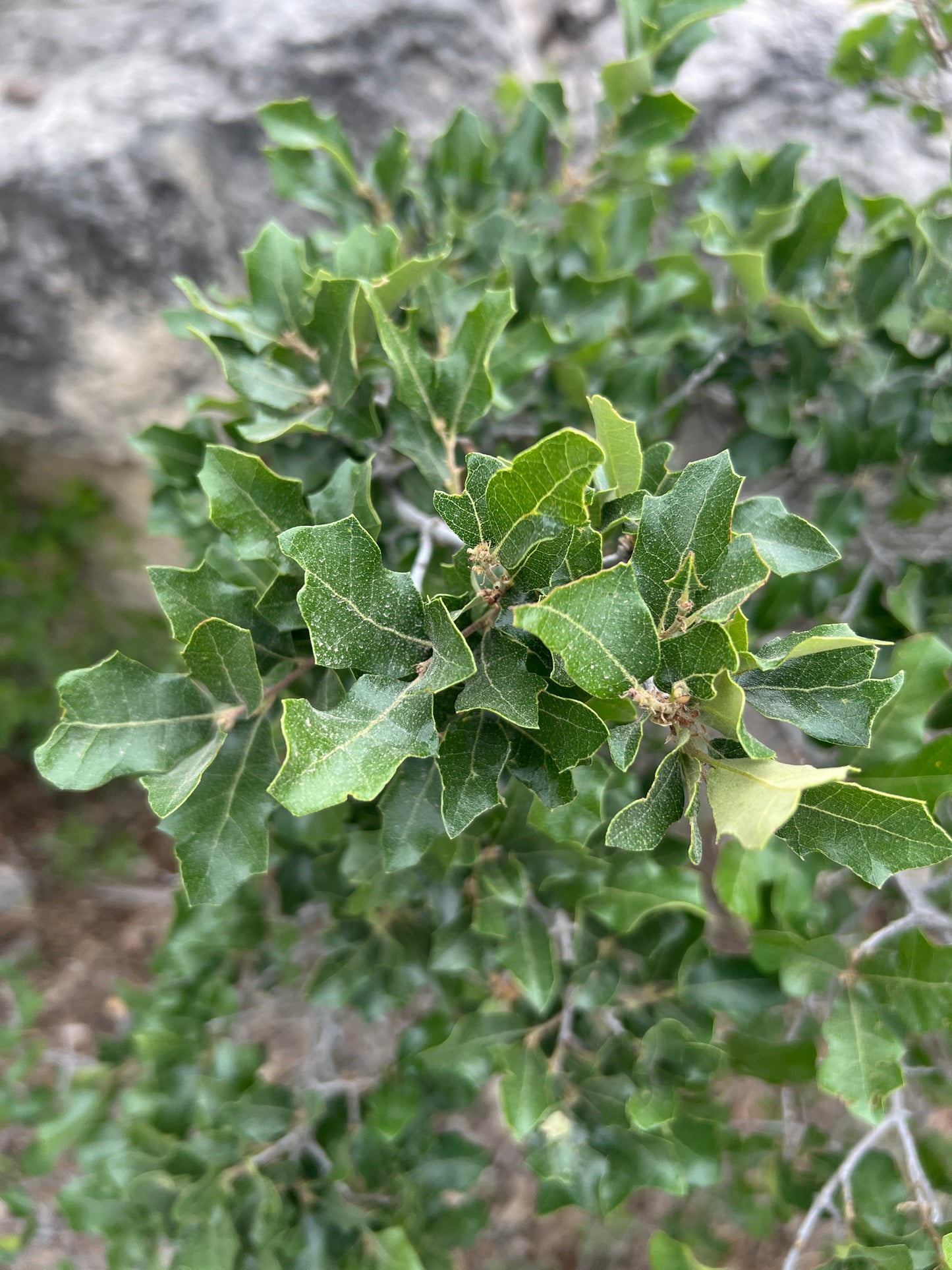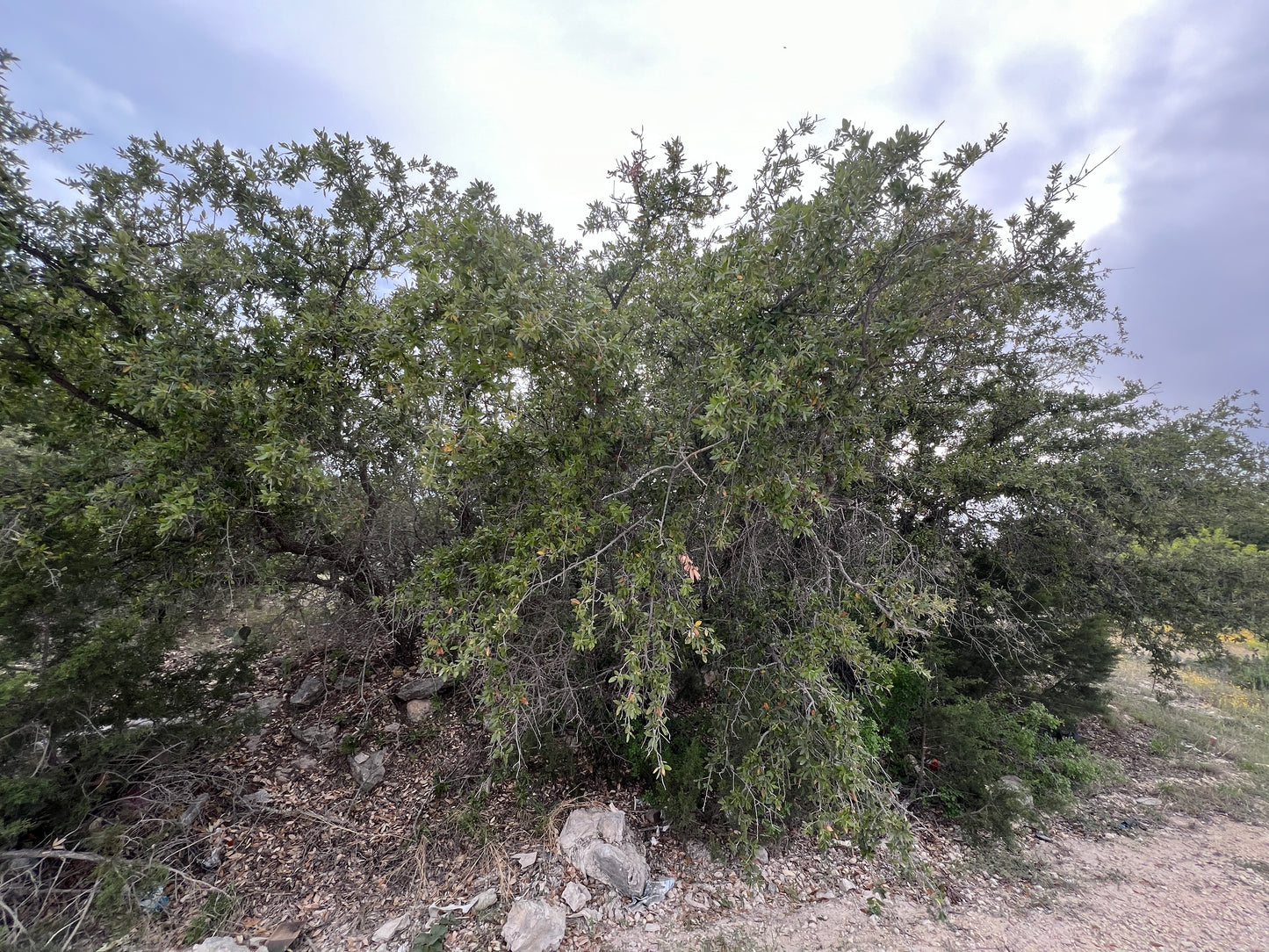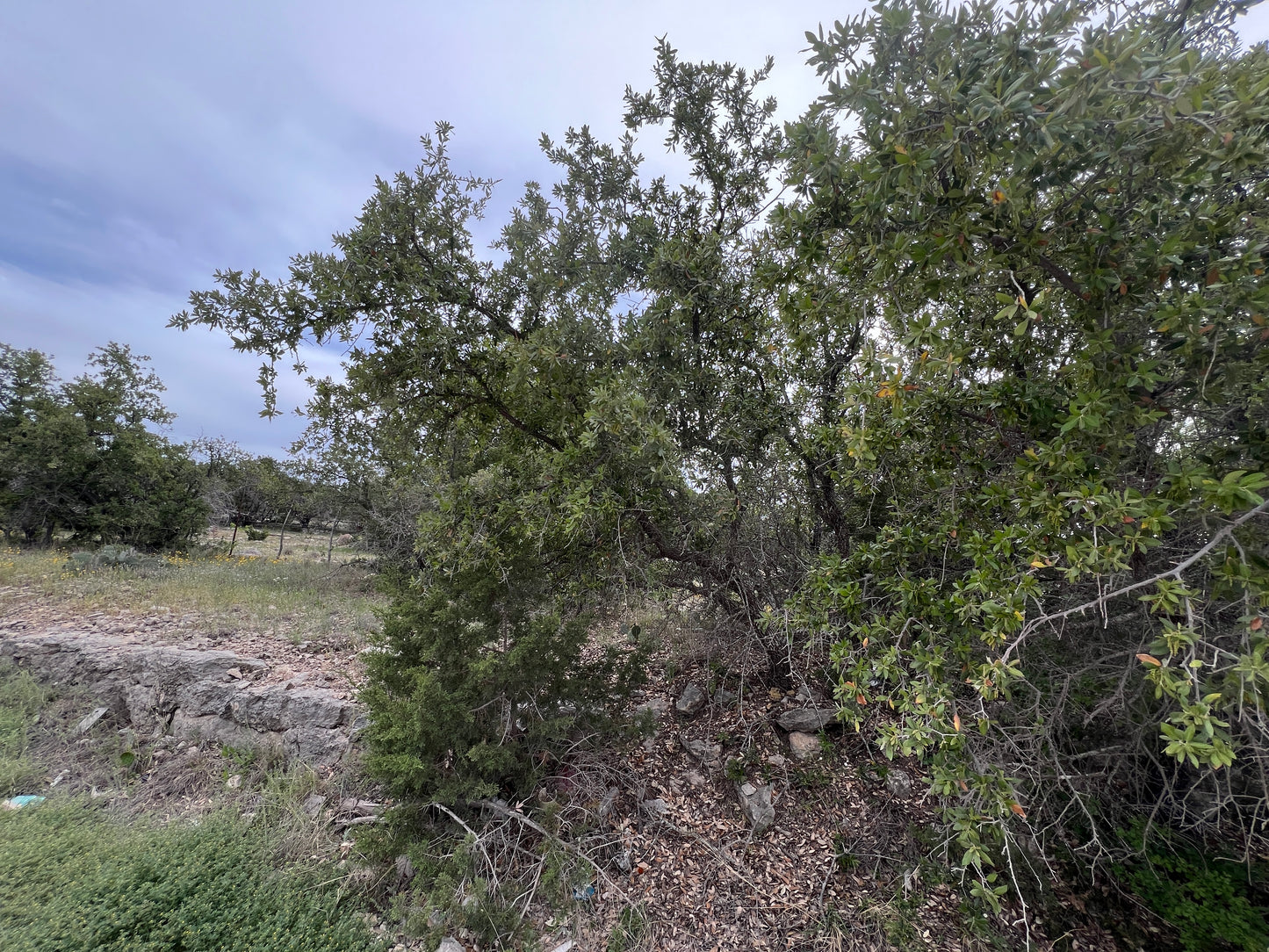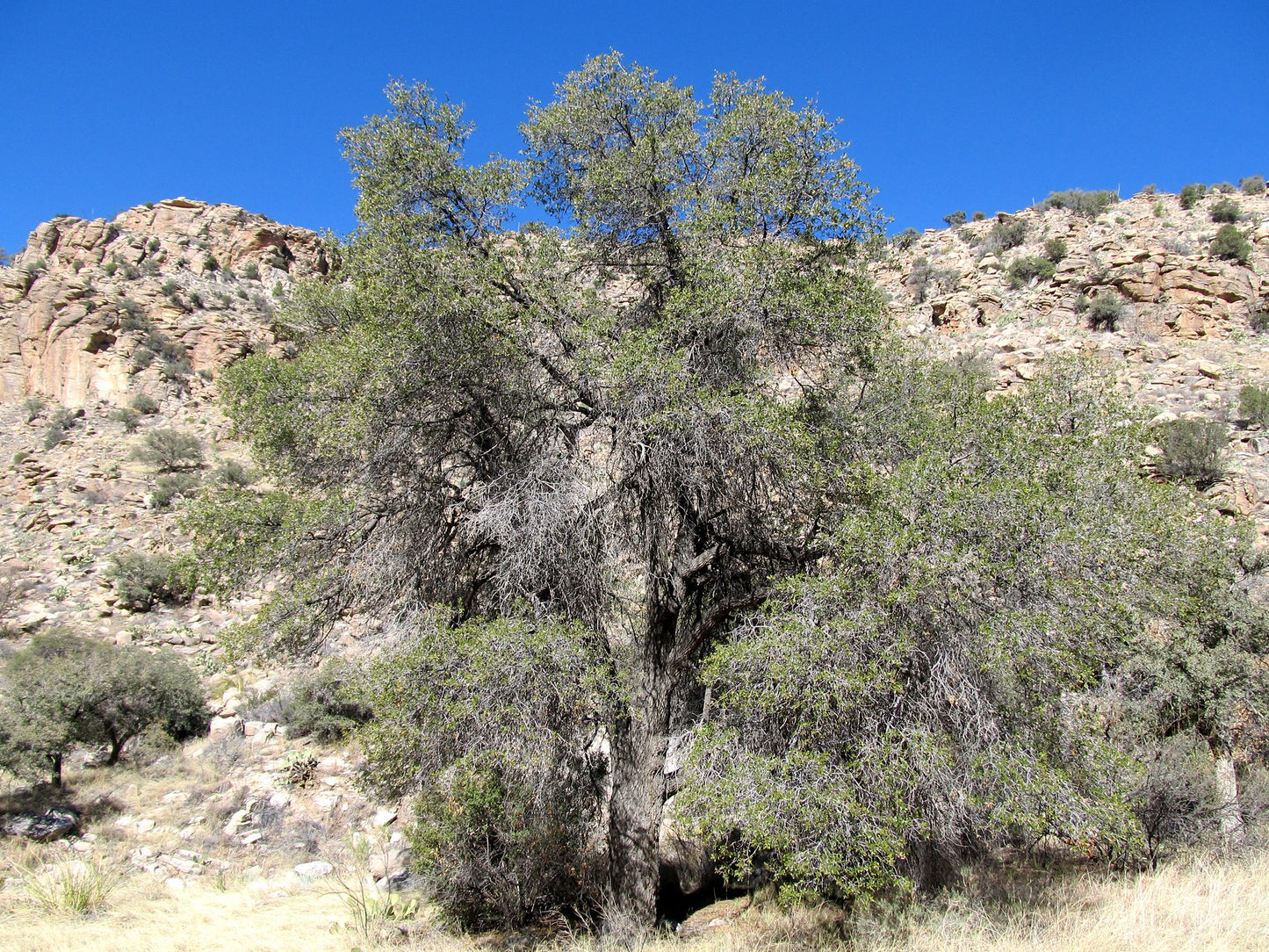Floridaseeds
Emory Oak 1 Oz 50 Seeds Quercus emoryi
Emory Oak 1 Oz 50 Seeds Quercus emoryi
Couldn't load pickup availability
Quercus emoryi, commonly known as Emory oak, is a species of oak native to the southwestern United States and northern Mexico. Here’s a detailed description:
Appearance:
Tree Size and Form: Emory oak is a medium-sized deciduous tree, typically reaching heights of 20 to 40 feet (6 to 12 meters). It has a broad, rounded canopy with a somewhat irregular shape.
Leaves: The leaves are usually 2 to 4 inches long and 1 to 2 inches wide. They are generally elliptical or ovate with a dark green, leathery texture. The leaf margins are often slightly lobed or wavy, and the underside of the leaves may have a lighter, slightly fuzzy texture.
Acorns: The acorns are relatively small, about 0.5 to 1 inch long. They are usually brown or reddish-brown when mature and are enclosed in a shallow, warty cup that covers about one-third of the acorn.
Cultivation:
Climate: Emory oak is well adapted to arid and semi-arid environments. It thrives in hot, dry climates typical of the southwestern U.S. and northern Mexico. It is drought-tolerant once established but prefers well-drained soils.
Soil: It grows best in well-drained soils, including rocky or sandy soils. It can tolerate a range of soil types, including poor soils, as long as drainage is good.
Watering: Emory oak is drought-tolerant and requires minimal supplemental watering once established. Overwatering or poorly drained soil can lead to root problems.
Uses and Significance:
Ecological Role: Emory oak plays an important role in its native ecosystems, providing habitat and food for various wildlife species. Its acorns are an important food source for animals like squirrels and birds.
Landscaping: Due to its attractive foliage and adaptability to dry conditions, Emory oak is used in xeriscaping and low-water landscaping. It is valued for its shade and can be planted in urban and rural settings where drought tolerance is a key consideration.
Cultural Significance: In some areas, Emory oak has been used traditionally by indigenous peoples for its acorns, which can be processed into food.
Overall, Quercus emoryi is a resilient and adaptable oak species, well-suited for arid environments and valued for both its ecological contributions and its utility in landscape design.










